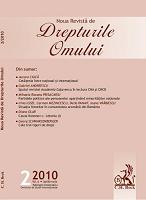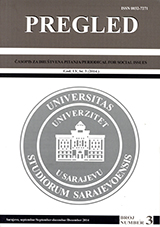OKVIR ZA LEGITIMIRANJE I ISPITIVANJE IRACIONALNOSTI FAŠIZMA
Author(s): Šefik Baraković / Language(s): Bosnian
/ Issue: 3/2014
Keywords: irrationality; civil society; liberalism; civil dynamics intensity; civil perspectives; liberalism; post-liberalism; totalitarianism; fascism
Irrationality is the structural component and guideline of developed civil system of relations in its perspectives, maintenance, transformation, functionality and particularly justification. The irrationality serves as the basis for the ideology and policy of power. By the means of structuring, the irrationality determines the system of civil relations and, as a factor of their legitimate intervention, has different effects on the levels of civil progress at various times. The intensified civil dynamic by its development that resulted in more complex produced relations, was creating and improving the apace and conditions in which the irrationality was objectively broadened and got the larger degree of incorporation and meaning of “apocalypse”, apart from periods of civil historical development. From historical perspectives, developing and facilitating of civil dynamics were not just expressed and encouraged by the political and ideological developments, but also theoretical generalizations directed to enrich civil processes with appropriate adequate relevance or profiled measure. The relevance was promoted in two ways! In a certain course, it could in the end substantially mediate civil processes and relationships, on the other hand, and also establish and exceed their concretization by giving a possible contribution to the development of character and connections that these processes should have been serving consistently. The numerous theoretical aspects and considerations were formed and developed, starting from relativism, pragmatism, historicism, logical empiricism and other different forms of positivism, whose basis, as stated by M. Horkheimer, is characterized by its inability to comprehend that the child and adults are not only two different complexes of facts. Those facts suggested that the man is undergoing changes, yet remaining the same with himself, and in the way of it and doing so, the positivist logic remains the logistics of civil systems! With increased or reduced sensitivity and referenced legitimacy, the historically determined theoretical considerations used to achieve and exercise their place in the institutions and processes of civil and social relations.
The continuity of civil structures relations intensifies the dynamics of civic disposition! The civil transformations are promoting the domination forms, while it is being assured and determined by the functional intensity of substantially achieved power. In the postliberalism, the supremacy and inviolability agent productively mirrors the established precedence and monopolies in the exercise of civil expediency.
More...


